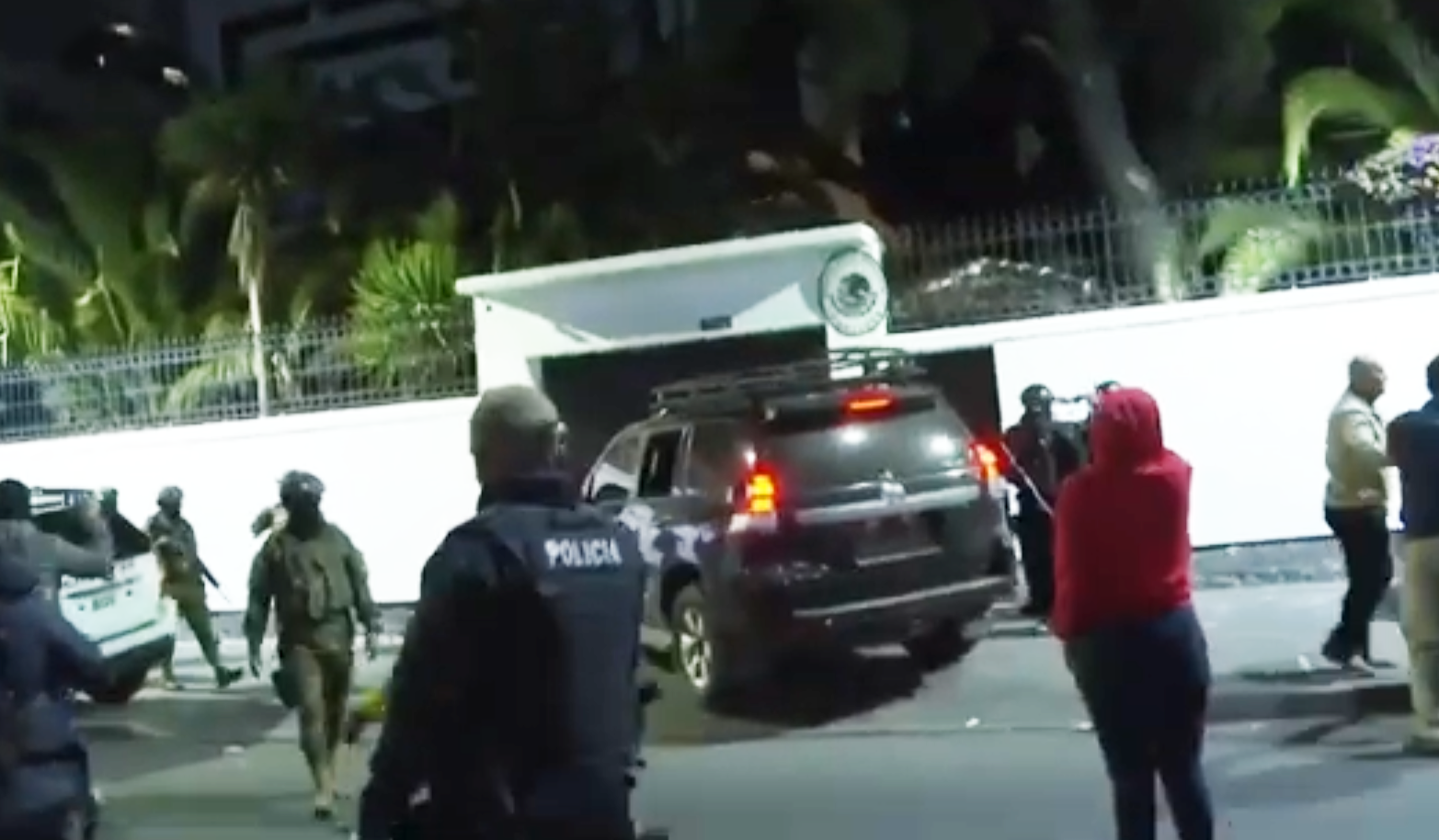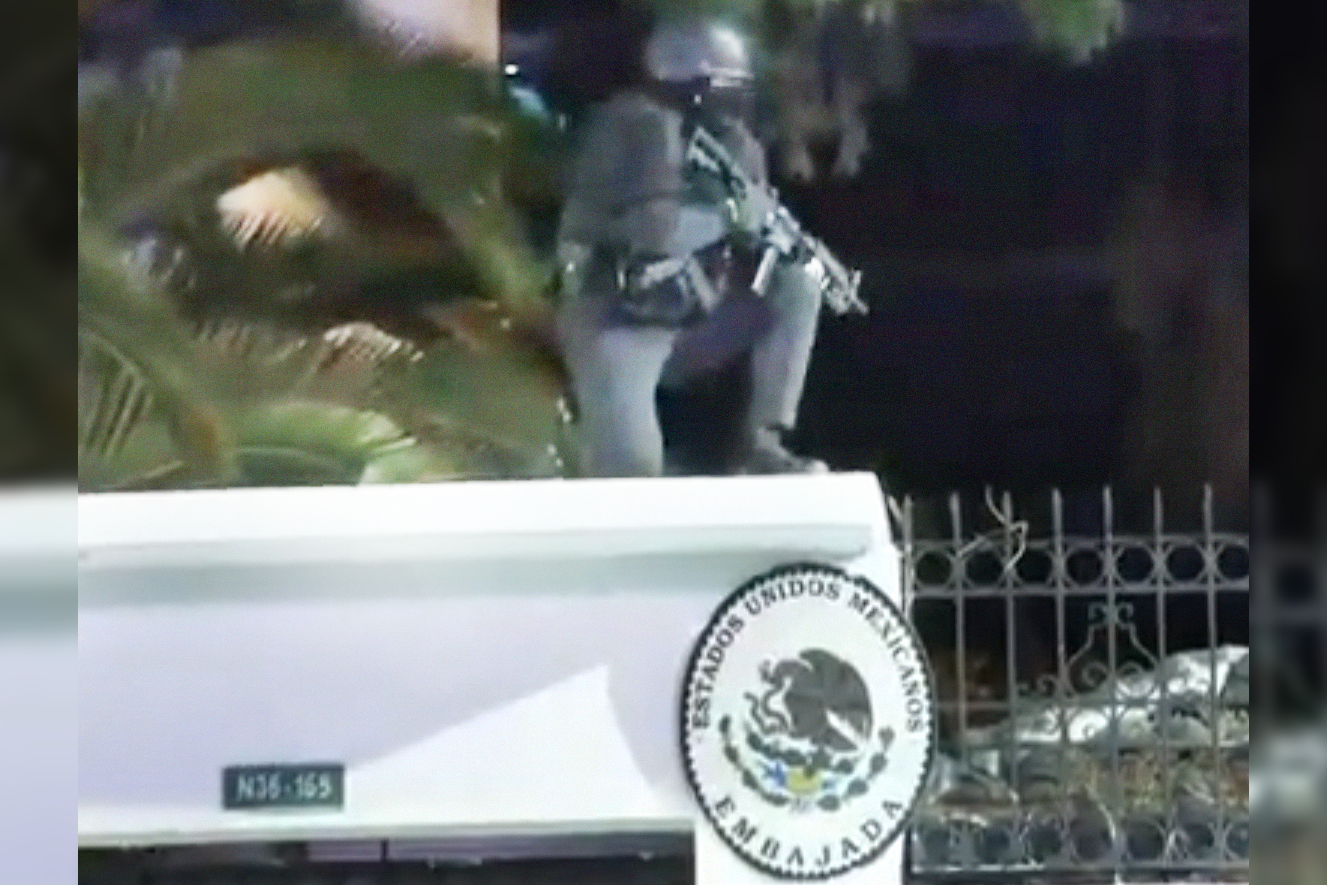On the night of Friday 5 April, in a clear violation of international law and bourgeois institutions, President Daniel Noboa ordered his police to invade the Mexican embassy in Quito to arrest former Vice President Jorge Glas, who had been granted political asylum by the Mexican authorities.
Jorge Glas was Rafael Correa's vice-president in the 2013-2017 term, and was convicted of diverting resources from reconstruction works in coastal cities, which were badly affected by an earthquake in April 2016. Rafael Correa has also suffered political persecution from the Ecuadorian judicial system. Correa has had his asylum request accepted by the Belgian government and has been living in Belgium since 2017.
Jorge Glas had been in the Mexican embassy since December 2023, and his request for political asylum had been granted on Friday 5 April. The Mexican Foreign Minister, Alícia Barcena, had already requested safe conduct for Jorge Glas to leave the country, but was surprised when the Ecuadorian police stormed the Mexican embassy at night with armoured cars. The head of the Mexican diplomatic delegation, Roberto Canseco, who tried to prevent the illegal police action, was beaten during the raid.
Mexican President Lopez Obrador immediately announced the severance of diplomatic relations with Ecuador and requested the withdrawal of all Mexican embassy staff from the country.
The violation of Mexican territory
 Embassy invasions are very unusual and serious / Image: cambio21, Wikimedia Commons
Embassy invasions are very unusual and serious / Image: cambio21, Wikimedia Commons
Daniel Noboa's government has ignored the principles of international law and violated Mexican territory with this assault on the embassy. In his demagogic media campaign against ‘crime and corruption’, he has overreached himself. He has not received the open support of either US imperialism or the European Union. Even reactionary governments, such as that in Argentina, have rebuked him.
The Bolivian government has summoned its ambassador to the country and is also under pressure to break diplomatic relations with Ecuador; Colombia’s Gustavo Petro will take action at the Inter-American Commission on Human Rights to issue precautionary measures in favour of Jorge Glas; Brazil has strongly condemned the violation of the Mexican embassy.
Embassy invasions are very unusual and serious. For instance, after Pinochet’s coup d'état in Chile, thousands took refuge in various embassies, notably the Swedish embassy, and were able to leave the country. But this is not unprecedented, even in recent times. During the reactionary pro-imperialist coup attempt in 2019 in Venezuela, the US government handed over the Venezuelan embassy in Washington to the reactionary opposition, recognising Carlos Vecchio, an ally of Juan Guaidó, as the Venezuelan ambassador to the US.
It is important to remember that in Lenin Moreno’s government, in 2019, he authorised the London Metropolitan Police to enter the Ecuadorian embassy in the UK to arrest Julian Assange, the journalist who revealed the crimes of American imperialism. Rafael Correa had granted him asylum in 2012 and he lived in the Ecuadorian embassy until 2019. Since then, he has been imprisoned in inhuman living conditions pending his extradition to the US.
These dramatic events expose how bourgeois law is a farce. The Ecuadorian president Noboa has ignored international law and the Geneva Convention, and has suffered no concrete consequences so far. When it concerns them, the ruling class is prepared to break its own laws and agreements in defence of its interests.
The workers’ movement may use democratic rights – for the most part, won in struggle – but without sowing illusions in bourgeois democracy, which in the end is only a fig leaf to disguise the dictatorship of capital. The defence of the right of asylum is part of the struggle of the working class.
Daniel Noboa’s government is very unpopular. The advance of violence in the country, the result of the capitalist system itself, has been the excuse for violations of democratic rights. It has a totally anti-worker policy. This outrage should be met with a firm response on the part of the leadership of the workers’, peasants’ and indigenous movement with big demonstrations in the streets against the government, with the aim of bringing it down, which is wholly possible.

